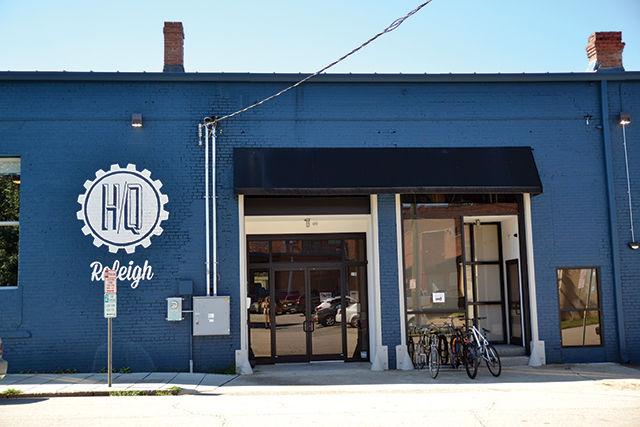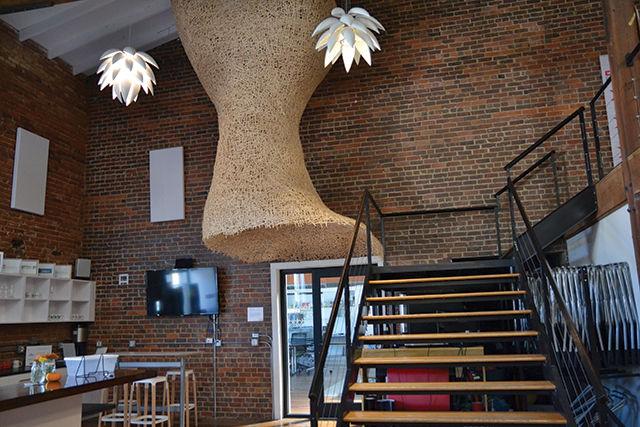HQ Raleigh is a warehouse converted to office space in downtown Raleigh, renting out to companies, startups and entrepreneurs. Walking into the building, you’ll find impromptu meetings at the in-house coffee bar (complete with beer taps), while people click away on laptops behind glass office doors. Within this hub of innovation, you’ll also find a few NC State students.
The NC State Entrepreneurship Clinic — coming up on a year since the launch — has its own space in HQ. Students in the clinic are either enrolled in a class or volunteering, where they work on projects directly with companies, many of them housed in HQ.
Lewis Sheats, director of the clinic, wanted to place students with small-staffed startups, who instead of needing an intern, were looking for another temporary team member.
“Youth and energy is always an asset, but the real asset is knowledge,” Sheats said.
In many fields, it’s almost inescapable for students to gain valuable work experience for a position; they usually must run the trial of an unpaid internship. To soften the blow of work in exchange for experience, many employers will offer class credit. The Entrepreneurship Clinic is a more refined evolution of this process.
The clinic has its own workspace in HQ where students are surrounded by the start-up community of Raleigh. Companies can submit a project to the clinic for students to use their own expertise. Students are not paid but have the benefit of choosing their projects, working as consultants. It changes the system from students being employees to working as partners with a business.
Last fall, Jacob Burt, a junior studying entrepreneurship and data analytics, worked with Lumenova, a technology startup working on transferring 4k video wirelessly, where he examined the market and competitors.
“If you come as an intern, you may not be adding value, but just doing the same thing over and over again,” Burt said. “We look to add to business development.”
According to Burt, after initial meetings students and a company will target a specific problem to solve and then implement a project with a set end date.
In true startup spirit, the Entrepreneurship Clinic started off fast, getting the class officially set up Dec. 23, 2014. This gave Sheats just weeks before classes started to recruit students to join. Six students signed up, including Jared Childs, a 2015 alumnus who studied management. Childs said he attributes the clinic to opening up a whole new community where he met entrepreneurs and was exposed to ideas he may not have been to in a classroom.
“When you look at your average 20-something-year-olds, their network is other 20-something-year-olds,” Childs said.
The clinic has since grown to include 57 student participants. Childs now works as program manager for the Entrepreneurship Clinic while also running Pitch and Primer, a clothing startup. Childs is still apart of the HQ community, even drawing from the clinic for help on projects.
“Without HQ, the clinic would not be as successful,” Childs said. “When you walk in, you feel this energy, and it’s contagious to students.”
Currently, the clinic is still growing and accepting students from all majors. Sheats emphasizes it’s not just business students needed, but anyone on campus with a skill set and entrepreneurial drive.
“The number one plan right now is to spread this around campus,” Sheats said. “To get students with a more diverse background, not just curriculum, but gender, race and experiences.”
The inside of HQ Raleigh has an open design, encouraging collaboration between people and teams.









